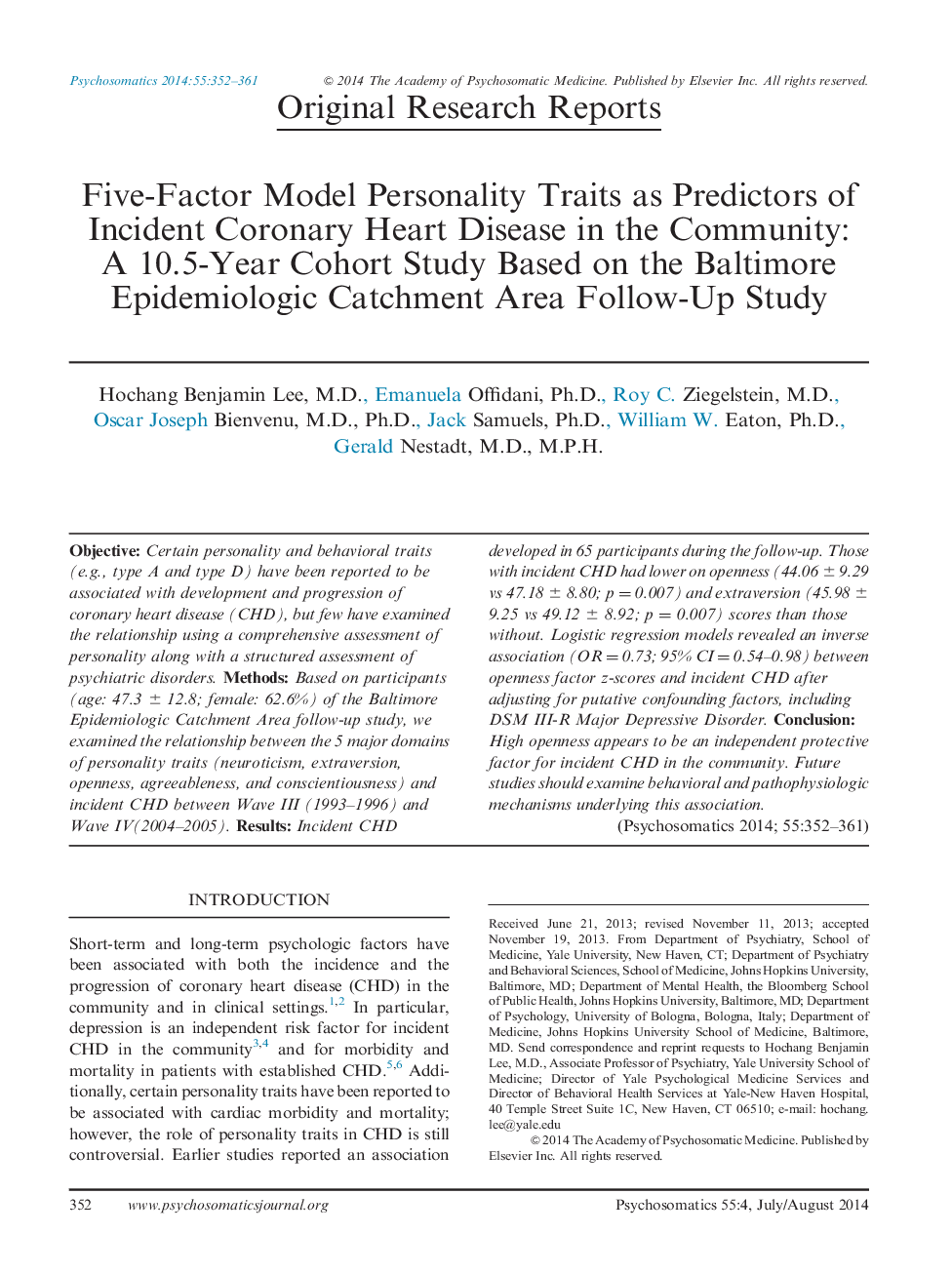| Article ID | Journal | Published Year | Pages | File Type |
|---|---|---|---|---|
| 337811 | Psychosomatics | 2014 | 10 Pages |
ObjectiveCertain personality and behavioral traits (e.g., type A and type D) have been reported to be associated with development and progression of coronary heart disease (CHD), but few have examined the relationship using a comprehensive assessment of personality along with a structured assessment of psychiatric disorders.MethodsBased on participants (age: 47.3 ± 12.8; female: 62.6%) of the Baltimore Epidemiologic Catchment Area follow-up study, we examined the relationship between the 5 major domains of personality traits (neuroticism, extraversion, openness, agreeableness, and conscientiousness) and incident CHD between Wave III (1993–1996) and Wave IV(2004–2005).ResultsIncident CHD developed in 65 participants during the follow-up. Those with incident CHD had lower on openness (44.06 ± 9.29 vs 47.18 ± 8.80; p = 0.007) and extraversion (45.98 ± 9.25 vs 49.12 ± 8.92; p = 0.007) scores than those without. Logistic regression models revealed an inverse association (OR = 0.73; 95% CI = 0.54–0.98) between openness factor z-scores and incident CHD after adjusting for putative confounding factors, including DSM III-R Major Depressive Disorder.ConclusionHigh openness appears to be an independent protective factor for incident CHD in the community. Future studies should examine behavioral and pathophysiologic mechanisms underlying this association.
